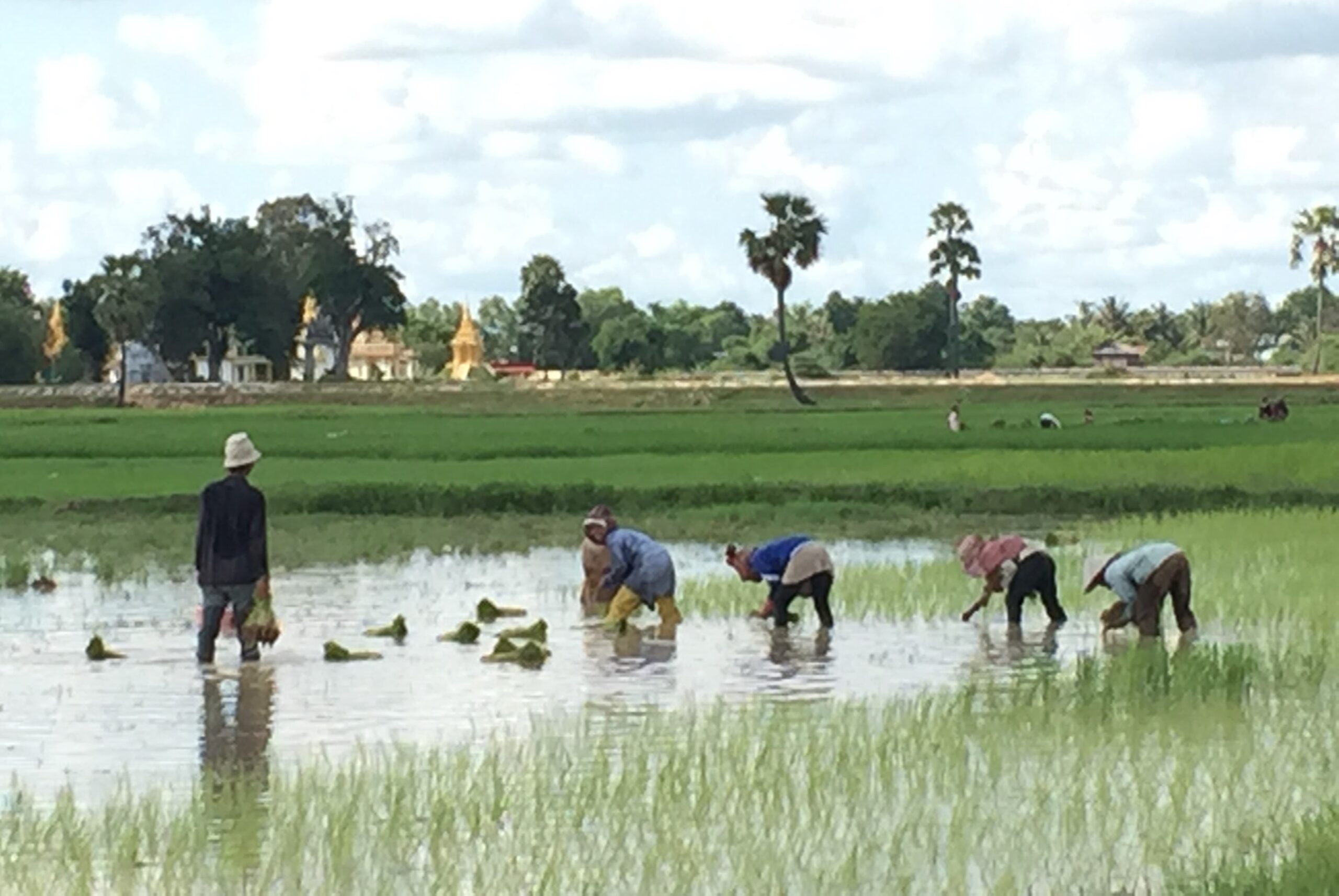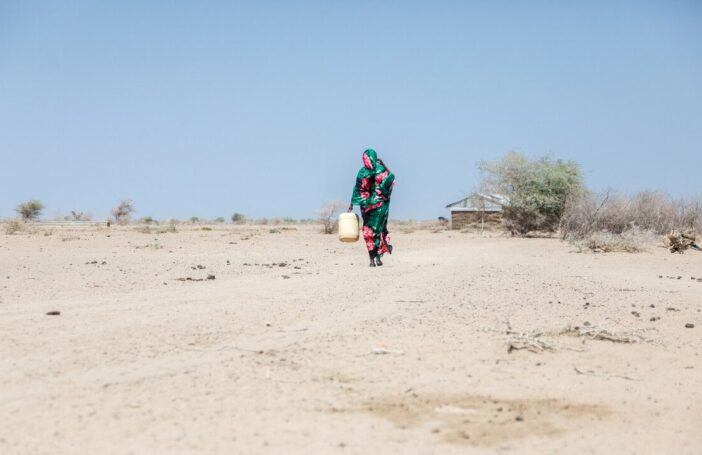Conflict, climate extremes and COVID-19 have disrupted food production and supply chains causing hardship and uncertainty for farmers and consumers worldwide.
Today, around 735 million people are experiencing hunger. More than two billion people suffer one or more micronutrient deficiencies, compromising immune systems, slowing child growth and development, and undermining human potential. And about 30% of the global population – 2.4 billion people – are considered food insecure.
The global food system is not delivering on its most fundamental mission: to provide adequate, nutritious food for all people at all times. With ubiquitous food price inflation and growing inequality of food access, governments are seeing food insecurity as a trigger for discontent and political instability.
In December 2022, Chinese President Xi Jinping identified agriculture as a “national security issue of extreme importance”. Xi has called for food self-sufficiency through improved agricultural productivity.
India has been extraordinarily successful in improving its agriculture over the past 50 years. Famously described by William and Paul Paddock in 1967 as “can’t-be-saved”, the (now) world’s most populous nation emerged recently as the leading exporter of rice, contributing 40% of global exports.
Despite this remarkable turnaround, Indian officials have been spooked by high prices. Disruption of markets from the Russia–Ukraine war, fears of emerging drought conditions, and with elections on the horizon, India has moved to restrict exports, resulting in sharp increases in the world rice price.
The Philippines and Indonesia – both large rice importers in recent years – have responded with short-term price controls and safety net programs, respectively.
At the recent Association of Southeast Asian Nations (ASEAN) summit in Jakarta, national leaders issued a declaration on food security, recognising the need for improved productivity, resilience and sustainability of food systems. A few days later in New Delhi, the G20 leaders called for increased innovation and investment in sustainable and climate-resilient agriculture.
Both the ASEAN and G20 statements recognised agricultural productivity improvement as part of a broader set of investments including trade and market infrastructure, reducing food loss and waste, and enhanced social protection programs.
Pacific Island nations face decreased arable land and increased urbanisation. Despite increasing reliance on food imports, around 80% of Pacific Islanders depend on local produce for a major part of their diets and are vulnerable to weather fluctuations and climate change. At a Pacific Small Island Developing States meeting in December 2022, Samoa’s Prime Minister Fiamē Naomi Mata’afa placed agriculture and food security at the top of the region’s agenda.
For decades, Australia has been a valued source of agricultural innovation. Public investment through CSIRO (the Commonwealth Scientific and Industrial Research Organisation), state agriculture departments and universities – coupled with a vibrant agri-business sector – has contributed to Australia’s food export competitiveness. Productivity improvements have been realised in hostile physical environments characterised by variable and extreme weather conditions.
Internationally, Australia’s agricultural research community has established an envied reputation through the Australian Centre for International Agricultural Research (ACIAR). Established in 1982, ACIAR has played a unique role in establishing and financing research partnerships between Australian institutions and national agricultural research organisations, mainly in the Indo-Pacific region.
Agriculture has also been a prominent feature of Australian bilateral assistance aid budgets since the 1970s. Through a partnership with the International Rice Research Institute, Australia played a monumental role in helping Cambodia recover from war and genocide to emerge self-sufficient and a modest rice exporter.
For more than two decades, the Government of Australia has supported Timor-Leste in strengthening smallholder agriculture. Yet food security remains elusive for Australia’s northern neighbour, where rainfed farming is vulnerable to climate change. President José Ramos-Horta recently called on Australia to pay greater attention to a worsening global food crisis.
The breakdown of the 2023-24 Australian aid budget shows that “Agriculture, Trade and Other Production Sectors” – based on Organization for Economic Cooperation and Development reporting guidelines – amounts to $389 million, representing just 8% of the $4.77 billion aid budget.
DFAT’s recently released international development policy recognises that “development underpins stability, and that a prosperous and stable region is in our national interest”. The policy explicitly commits to deploying Australian expertise, deepening partnerships between Australia and the region, and expanding capacity-building efforts.
While justifiably emphasising health access, gender equality and disability equity, the policy document disappointingly overlooks the dominant employment sector in the region – agriculture – and makes just two passing references to food insecurity.
Applying principles of comparative advantage, historical identity and enlightened self-interest, Australia should consider a more explicit strategic emphasis on agriculture for regional food security. A suitable target is to allocate 20% of official development assistance to agriculture and related food security investments by 2030. As a precedent, Ireland committed in 2008 to allocate 20% of its aid budget to fighting hunger, drawing on its culturally deep connection to the Great Irish Famine.
Australia could additionally signify its intent in this area by rejoining the International Fund for Agricultural Development (IFAD), as recently proposed in a campaign mobilised by Global Citizen, an action-focused movement tackling climate change, poverty and inequality.
IFAD is the only multilateral agency sharply focused on improving the lives and livelihoods of smallholder farmers. IFAD has an active presence in the Indo-Pacific region, with a loan portfolio totalling US$2.6 billion and spanning 20 countries.
By becoming a member of IFAD, Australia would build on its credibility and visibility in agriculture and food security across the region. Furthermore, a partnership between ACIAR and IFAD would harness their complementary skills, leading to greater impact for both organisations. IFAD membership would also reopen opportunities for Australian nationals and firms to become directly engaged in IFAD operations worldwide, deploying their expertise as envisaged in DFAT’s new development policy.
Food security has emerged as a geopolitical priority across the Indo-Pacific region, especially with climate change and another El Niño looming. Stepped-up action by Australia in support of agricultural development and food security would be timely and justified, and will be widely welcomed in the region.




